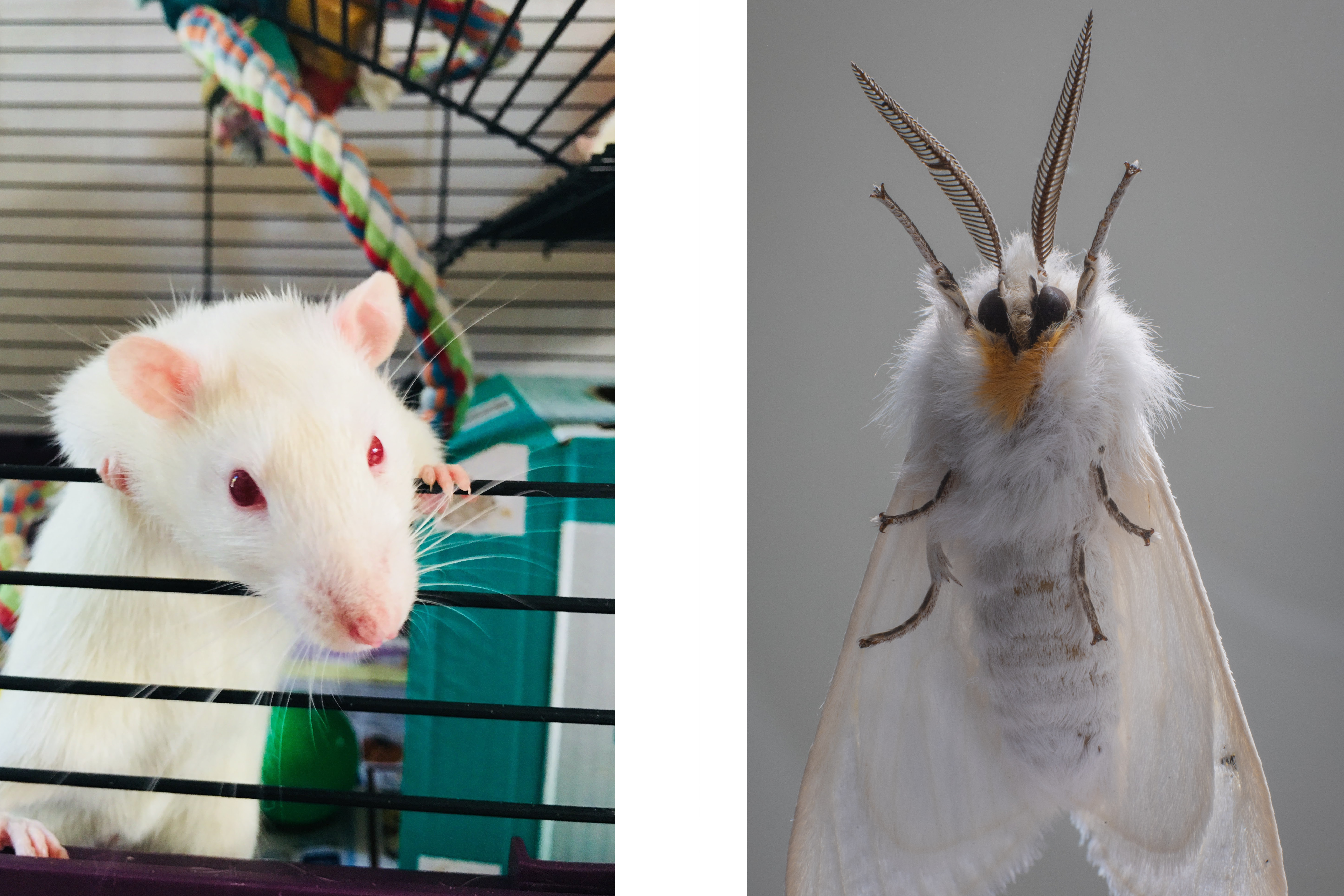How can smell control behavior?
The DFG (German Research Foundation) is funding the research group led by Professor Dr. Veronica Egger of the University of Regensburg in the research project "Modulation of Olfaction: How Recurrent Circuits Determine State-Dependent Behavior" with about 4.2 million euros.

Do the neural networks of the olfactory systems of rodents and insects exhibit convergent recurrent circuits? This is one of the questions to be answered in this project. Pictures: Annemarie Horne (rat) and Malcom Baskerville (moth) at Unsplash.
Hunger and reproduction are among the most important factors influencing animal behavior. Worms, insects, mammals – most species rely heavily on the sense of olfaction to find food and reproductive partners. Conversely, metabolism and libido modulate olfactory perception. The research group led by Professor Dr. Veronica Egger of the University of Regensburg is pursuing a special approach: the members of the group are focusing on investigating the diverse and so far largely misunderstood mechanisms of feedback in networked circuits of the nervous system that control odor perception and odor processing as a function of behaviorally relevant states. At its annual meeting on June 28, 2022, the German Research Foundation decided to fund Veronica Egger’s research group in the research project “Modulation of Olfaction: How Recurrent Circuits Determine State-Dependent Behavior” with approximately 4.2 million euros.
The functioning of olfaction is similar in all species and a prime example of convergent evolution, i.e. similar but independently evolved characteristics of not closely related species. Vertebrates pick up odors via their nose, insects via antennae. However, the path of the odor into the brain and what happens afterwards is comparable: in both vertebrates and insects, each olfactory nerve cell has only one of many subtypes of olfactory receptors. In both, all nerve cells with the same receptor terminate in so-called glomeruli, spherical structures which then project to higher areas where signals from different glomerular channels are combined. “Beyond the convergent features of this ‘bottom-up sensory pathway,’ there are also striking similarities at higher levels of processing, namely in the recurrent, or feedback, circuits of the olfactory system,” explains the scientist, whose team includes twelve research groups at universities and research institutions in various German cities plus London. “With this research group, Veronica Egger leads a consortium that is nationally and internationally visible. I am very pleased that the DFG has recognized her exciting research approach and I congratulate her warmly on this great success,” says a delighted Professor Dr. Ernst Tamm, Vice President for Research and Promotion of Young Researchers at the University of Regensburg.
Taste is dominated by olfactory perception. A sip of coffee, a piece of Roquefort – the smell of the food is exhaled through the nose and creates taste. We remember: the sniffles? Then things taste rather bland. Hungry? Then some things smell twice as good… Every condition modulates the sense of smell. Food smells can change from attractive to unpleasant or suddenly become much more attractive and easier to perceive. But that’s not all, says Veronica Egger: “Such state-dependent modulation also occurs in other contexts that are determined – at least in part – by the sense of smell. For example, in social interactions, including mating, but also during navigation.” Navigation is often associated with foraging, such as in rodents. Or in insects, with finding the optimal place to lay eggs. Such modulations in neural networks can also be shaped by prior experience and corresponding learning processes. For example, certain odors are already expected in certain environments, and sensitivity to them is increased. Veronica Egger wants to find evidence for this in the coming years and show that the neural networks of the olfactory systems of rodents and insects exhibit convergent recurrent circuits.




